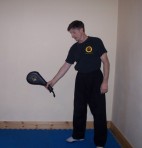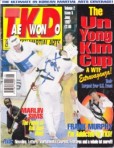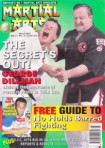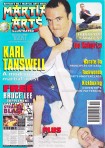ITA Taekwon-Do Summer Camp…Was it Hard?
Summer camps, a regular feature of many Taekwon-Do Associations, vary in intensity and are very popular as students can improve their training over an extended weekend or longer. Having organised a few such camps in a previous lifetime and forever curious to leapfrog my learning, I signed up Continue reading “ITA Taekwon-Do Summer Camp…Was it Hard?” »
An Original Taekwondo Pioneer – Master Ted Hopwood
Frank Murphy on one of the original ITF Taekwondo Pioneers in the UK – Master Ted Hopwod 8th Dan.
For most of us, the results of some hard training, while for the most part are beneficial there are times when some injury or stiff joints, or general physical and mental fatigue may give some cause to complain. Continue reading “An Original Taekwondo Pioneer – Master Ted Hopwood” »
Does the Style of Martial Art You Practice Really Matter?
I recently wrote the following paragraph at the start of a book. I share it here as it leads into the opening of this blog…
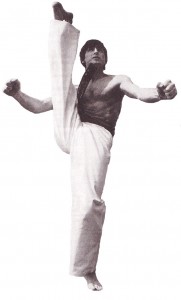 “I began my study of the martial arts after an assault by a gang of thugs in 1974. The beating hurt more psychologically than physically, and for a long time afterwards, revenge was my prime motivation to take up martial arts training. The Bruce Lee craze was in full swing and I began training in Boxing and Taekwondo in June of 1974. It really did not matter to me that the style was called Taekwondo, I could just as easily have walked into Judo or a Karate club.
“I began my study of the martial arts after an assault by a gang of thugs in 1974. The beating hurt more psychologically than physically, and for a long time afterwards, revenge was my prime motivation to take up martial arts training. The Bruce Lee craze was in full swing and I began training in Boxing and Taekwondo in June of 1974. It really did not matter to me that the style was called Taekwondo, I could just as easily have walked into Judo or a Karate club.
Continue reading “Does the Style of Martial Art You Practice Really Matter?” »
Taekwondo Training – Using Paddle Pads
Murphy’s Masterclass - Using Paddle Pads
This month we look at the paddle target pad. While the paddle pad is not strictly a focus pad, it still is a very valuable and important piece of equipment. The story behind the paddle is that a group of Korean Taekwondo experts who were looking to warm up prior to an exhibition held a martial arts shoe by the heel and held it so that the wider top end of the shoe could act as a target. Continue reading “Taekwondo Training – Using Paddle Pads” »
GTI Chairman Frank Murphy Addicted to Taekwondo
TAEKWONDO & KOREAN MARTIAL ARTS, Vol.2, Issue 5, June 1997, p.34 – 41.
Frank Murphy Interview – No Cure For Me – GTI’s Chairman, Frank Murphy tells us how he became addicted to Taekwondo. Continue reading “GTI Chairman Frank Murphy Addicted to Taekwondo” »
Taekwondo Breaking Techniques
MARTIAL ARTS ILLUSTRATED MAGAZINE, March 2000, Vol.12, No.10.
Frank Murphy’s Masterclass on Breaking, materials used, equipment and the training involved. This is a practice which is typical of many martial arts such as Karate and Taekwondo, and many of us are fascinated when we watch a demonstration of bricks and tiles being smashed into smithereens! But a small warning, with the understanding of Sports Science, it is now advisable to avoid such practice as it may cause arthritis in some individuals at a later stage in their lives. It should definitely be avoided by children as it will affect the growth and development of their bones.
Taekwondo Sparring for Beginners
MARTIAL ARTS ILLUSTRATED MAGAZINE, November 2000, Vol.13, No.6, p.47 – 49.
If you read this article…
You will help the martial arts industry to grow by helping newcomers, ease into the contact side of martial arts. If they have trained regularly and just about to purchase the sparring equipment, you really want to avoid them dropping out. This article could also be called Sparring too much too soon, one of the main reasons for a high rate of student drop out. Continue reading “Taekwondo Sparring for Beginners” »
Can you say one martial art is better than another?
All martial arts regardless of style are beneficial. But the skills and benefits will always and forever vary from art to art and person to person. Every student should respect other martial arts, because everyone is different, and no one size fits all. With fighting arts, it’s so easy to fall into the trap of comparing strengths. Remarks such as “We’re stronger” or saying “We’re more effective’’ are like saying Rugby is better than Soccer.







